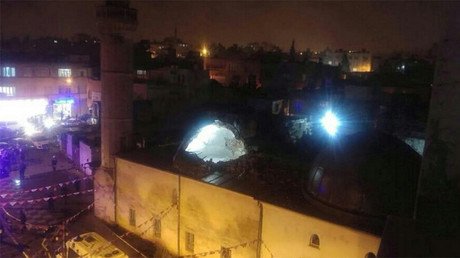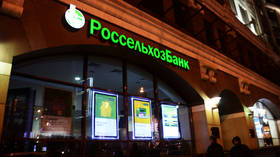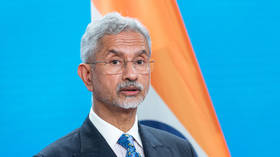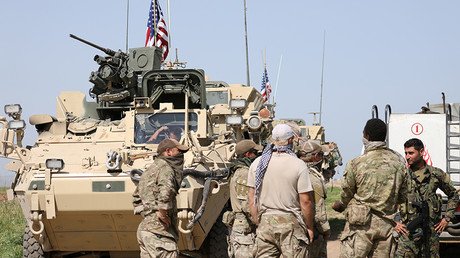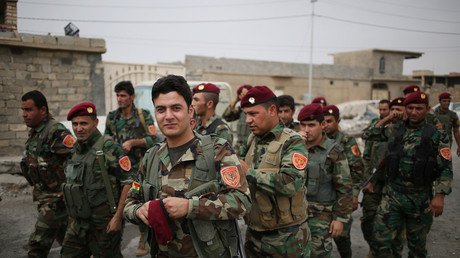‘Operation Olive Branch’: Key points of Turkish military campaign against Syrian Kurds
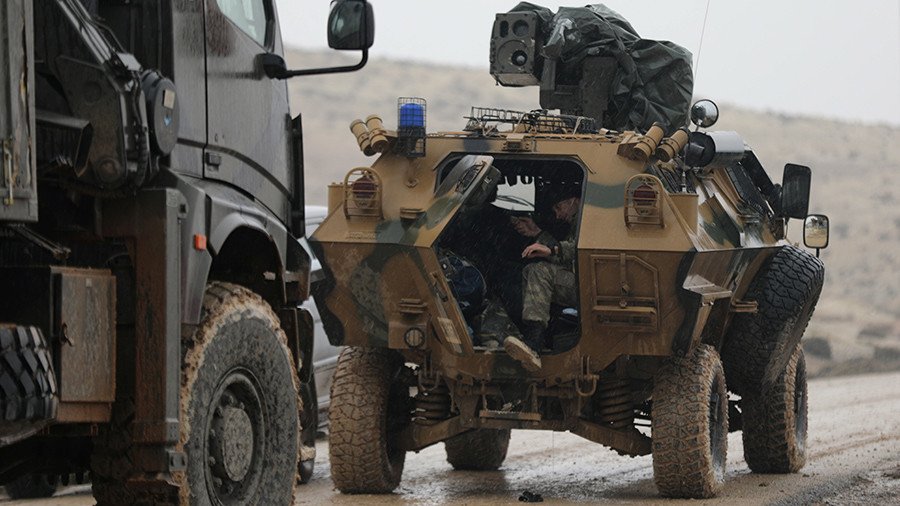
A new conflict unfolding in northern Syria has gripped the attention of the world, with some fearing it could turn into a broader confrontation in a country still plagued by war. These are the key points you need to know.
Battleground
Afrin is in northwest Syria, some 57km north from the city of Aleppo and around 30km from the Turkish border. The Afrin region has been something of a Kurdish enclave in an area separated from other Kurdish-held Syrian territories to the east by land controlled by the Free Syrian Army (FSA).
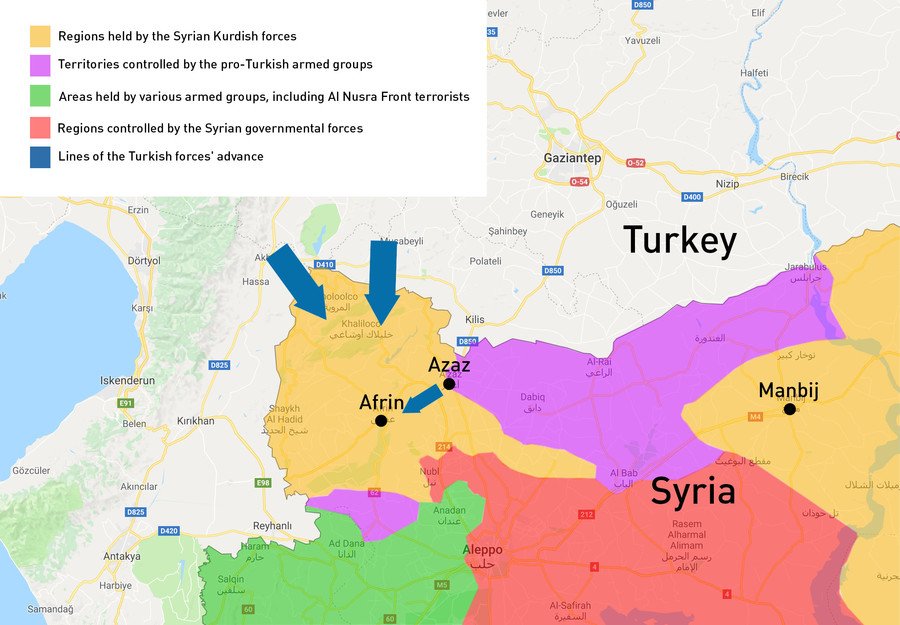
The district covers some 1,800 sq km, and borders Turkey in the west and in the north. Apart from the area held by the FSA, it also borders a region controlled by the Syrian government forces that lies to the southeast and territories seized by various armed groups, including the Al-Nusra Front terrorist group, located to the southwest.
Parties to the conflict
The Turkish armed forces are supported by the FSA – an Ankara-backed paramilitary opposition group which consists mainly of Syrian Arab and Syrian Turkmen groups, which hold the territories in Afrin, northwest Syria.
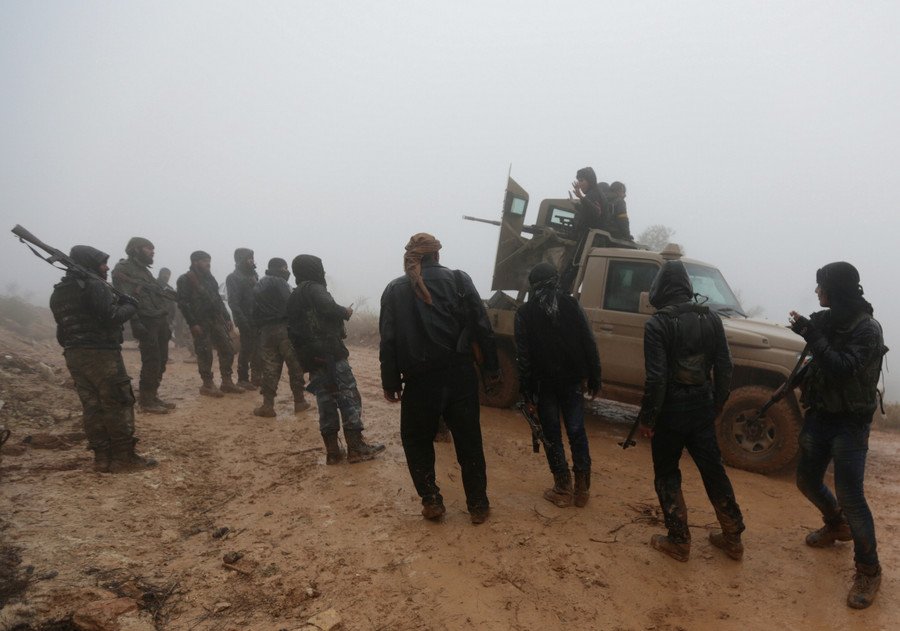
They are fighting the mainly Kurdish militias known as the People’s Protection Units (YPG). Formed as an armed wing of the Syrian Kurdish Democratic Union Party, the YPG rapidly expanded during the Syrian civil war. The group also fought against Islamic State (IS, formerly ISIS) and received backing from the US-led coalition, which supplied them with weapons.
READ MORE: How US went from supporting Syrian Kurds, to backing Turkey against them – in just 9 days
Ankara claims that the YPG are supported by the Kurdistan Workers’ Party (PKK), a group listed as a terrorist organization by Turkey as well as by the US, the EU and NATO.
How it started
Early on January 19, Turkish armed forces started shelling Kurdish-held areas of Afrin. Later the same day, Turkey’s defense minister, Nurettin Canikli, said that the operation “de facto started.”
On January 20, the Turkish Air Force launched strikes against Kurdish targets in Afrin while Prime Minister Binali Yildirim said that the airborne part of the operation had begun. On the same day, Turkey’s General Staff officially declared the start of the military campaign in the region, calling it ‘Operation Olive Branch’.
The step followed Ankara’s sharp criticism of the US plans to create a 30,000-strong, predominantly Kurdish border force in northern Syria. Ankara called it a “terror army” that Turkish forces would not hesitate to attack.
What Turkey wants
Turkey says it wants to secure its southern border with Syria, prevent the PKK and YPG from “infiltrating” Turkish territory and help the Turkish-backed Syrian armed groups take control over the Afrin region. Turkish officials have called Kurdish militias “terrorists” and said that Afrin was “critical in maintaining the security of Turkey’s border provinces and ensuring the security of the Euphrates Shield Operation area.”
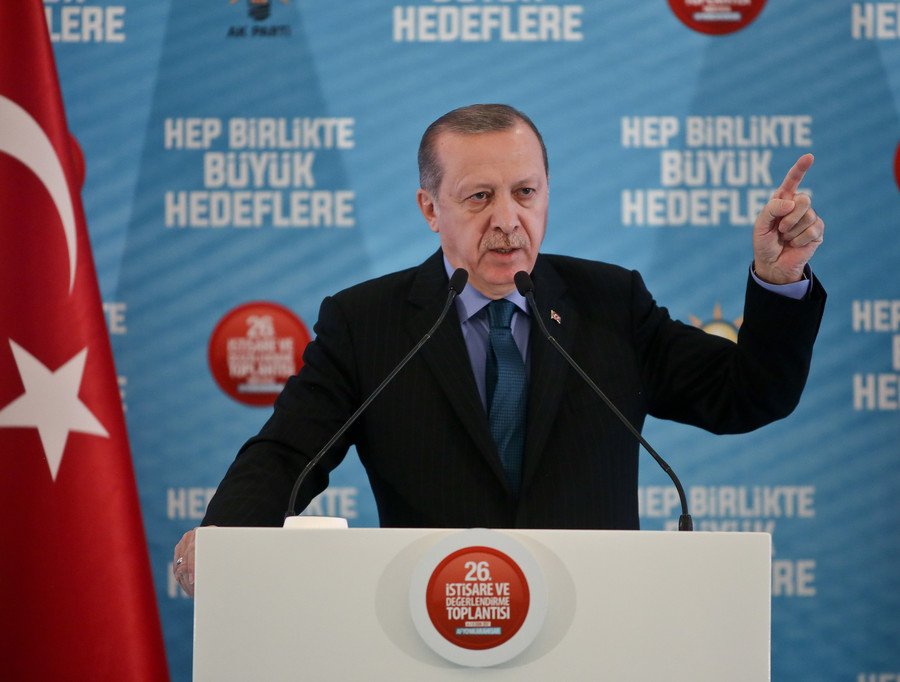
Operation Olive Branch is aimed at creating a 30km “secure zone” within Syrian territory, Yildirim has stated.
What the Kurds say
The Kurdish militias that seized control over the Afrin region back in 2012, soon after government forces retreated from the area, intend to keep what they call “their land.” Thousands of Kurds took to the streets of the city of Afrin to protest against what they called “Turkish aggression” after the operation started.
Later, local Kurdish authorities in Afrin also said that the Turkish operation “threatens the territorial integrity of Syria and the security and lives of the civilians.” They also called on the Syrian government to help repel attacks by the “Turkish occupier.”
Civilian casualties
Although it has only been ongoing for around a week, the confrontation has already claimed the lives of dozens of civilians. An estimated 5,000 civilians were displaced during the first days of the operation, according to the UN. According to UNICEF, at least 23 children have been killed as a result of fighting in the Syrian provinces of Afrin, Idlib, Saraqab, Khan Shaykhoun and Damascus.
Local Kurdish sources said that 141 civilians were killed, according to Syria’s SANA news agency. In response to the Turkish offensive, Kurdish militias shelled Turkish border towns on several occasions. The latest such attack, in which the Kurds used two rockets, killed two people in the Turkish town of Kilis and left a dozen more injured, according to the local authorities.
How long will the operation last?
There has been no clear date set for the end of the operation. Turkish President Recep Tayyip Erdogan said on January 26 that the operation will also target another northern Syrian city, Manbij. The city is controlled by US-backed Kurdish militia and is some 100km from Afrin.
What others say
Turkish actions have provoked concern among leaders both in the region and beyond. The Syrian government has branded the campaign an act of aggression, while Moscow has urged Turkey to show restraint and respect Syria’s territorial integrity.
Germany also criticized Turkey’s actions by saying that the last thing Syria needs now is yet another military conflict. On Thursday, Berlin also announced its decision to halt all arms exports at least until the new German government is formed, adding that it should not supply arms to crisis regions.
The decision is likely to affect some of Germany’s arms deals with Turkey, including a much-anticipated modernization of Turkish Leopard tanks. US President Donald Trump has also urged Turkey to “exercise caution” and warned that Ankara’s operations, if not wound down, may result in a direct clash between the two NATO allies in Syria.
